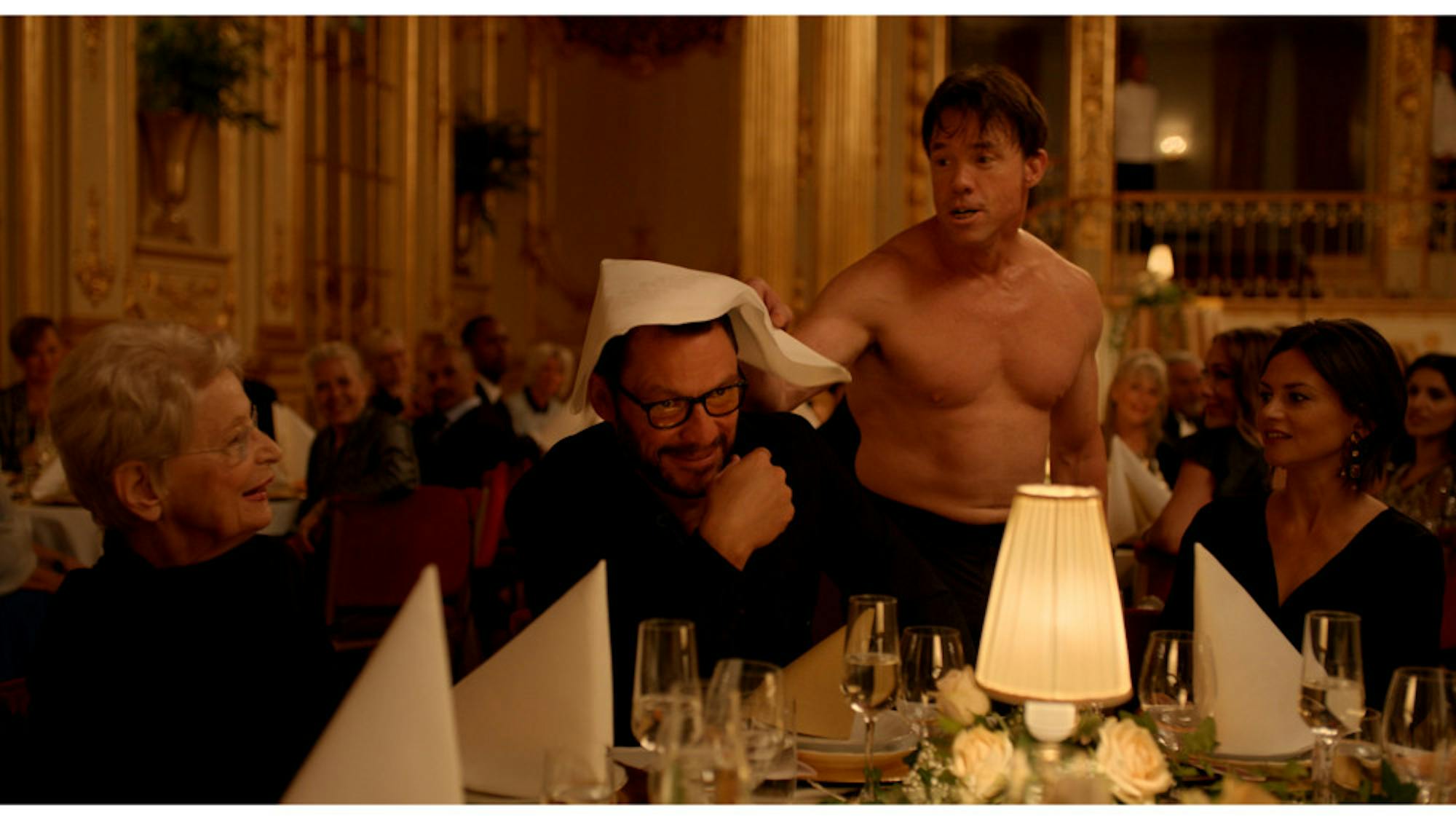Jimmy Kimmel once did a segment from Coachella in which he asked festival-goers if they had seen a number of fictitious bands perform. The concertgoers, not wanting to seem out of the loop, all said yes, that they had seen them, and some went into great detail about the made-up, comically named bands Kimmel mentioned. Though each of the people interviewed in the Kimmel segment knew they had no idea what he was talking about, they all felt compelled to appear hip, in the know and on the cutting edge. It is precisely this sentiment that must have led to a Cannes Palme d’Or for Ruben Östlund’s satirical film “The Square” (2017) as, when examined beyond its stylish, artsy interiors and topical storylines, it is a bumbling exercise in self-satisfaction.
The film’s interweaving plots and vignettes follow the urbane and polished Christian (Claes Bang), the curator of an avant-garde Stockholm art gallery, as he works to promote their latest exhibition: “The Square,” a lit-up square on the museum’s front courtyard. Inside it, according to the unseen artist, everyone shares equal obligations, equal rights and equal opportunities. Along the way, Christian has a bantering chess match of a romance with American journalist Anne (Elisabeth Moss), while tracking down his stolen phone and wallet, making an enemy of a young boy in the process.
If that sounds odd, it is. Director Östlund first burst onto the international scene in 2014 with “Force Majeure,” a complex and thought-provoking meditation on masculinity and fatherhood in a postmodern world. Here, he takes a similarly ambitious aim at the decadence and hypocrisy of the supposedly enlightened cultural elite, with much less success.
With each countless overlong shot of the homeless inhabitants of Stockholm and each subsequent meeting scene in which Christian and his colleagues discuss how they can showcase their collection as a hallmark of enlightened humanism, we are bashed over the head with subtext. The bacchanalian partying and casual, inept arrogance of Christian jarringly make it even clearer, in case we didn't already get it: the face of the artsy, enlightened class is nice to look at, but it’s gone a little too far up its own ass.
Östlund’s point is an interesting and necessary one, and the film does begin with some degree of promise. First, Christian struggles to defend a humorous bit of word salad detailing an exhibition to Anne as she interviews him. Soon after, a hysterical woman runs to him on the street asking for help from a supposedly violent boyfriend, and in the process of defending her and sending them both on their way, Christian realizes he has been conned out of his phone and wallet.
However, this promising beginning soon devolves into an infuriatingly smug series of disjointed plots falling apart. “The Square” heaves and labors through its 142-minute runtime, stopping far too many times to check out its own filmic muscles in the mirror. In one such scene, Christian and Anne (whose roommate is a chimpanzee! Satire!) argue over who will dispose of a post-coital condom and the implication that Anne would steal Christian’s powerful, handsome sperm. In another, performance artist Oleg (Terry Notary) takes his “wild man” act too far, attacking the attendees of a swanky gala, while nobody intervenes, because, you know, they’re not as “civilized” as they claim! The bizarre can be and often is the most effective way to deliver satire, but “The Square’s” high opinion of itself turns these scenes into a series of tiresome winks and nudges at the audience.
Danish actor Bang does his due diligence as the bumbling Christian, though the role basically just requires him to look alternately amused and perplexed. Moss provides a fairly intriguing turn as Anne, but her character fades away halfway through the movie. Dominic West appears as an American artist in a few scenes, but he is unable to make an impression.
Ironically, the accolades “The Square” has received prove Östlund’s point far better than he is able to in the film. The Palme d’Or given to the film almost feels like it is part of the film’s narrative; of course, the cultural elite class Östlund portrays would give such high marks to such a contrived and heavy-handed pat on the back of a film. If this were all part of Östlund’s master plan, then he is a genius. If more likely, it was not, then we are left with a film that critics praise because they feel that they should.
Too hip to be 'The Square'

Dominic West and Terry Notary in "The Square" (2017), a Swedish satirical drama film by Magnolia Pictures.
Summary
"The Square" has its rare moments, but it is on the whole far too satisfied with itself to be effective satire.
2 Stars





